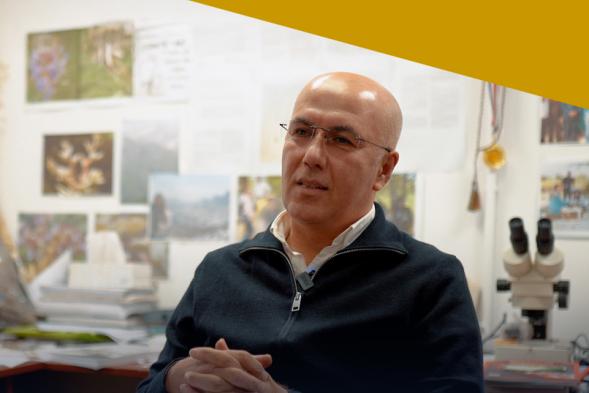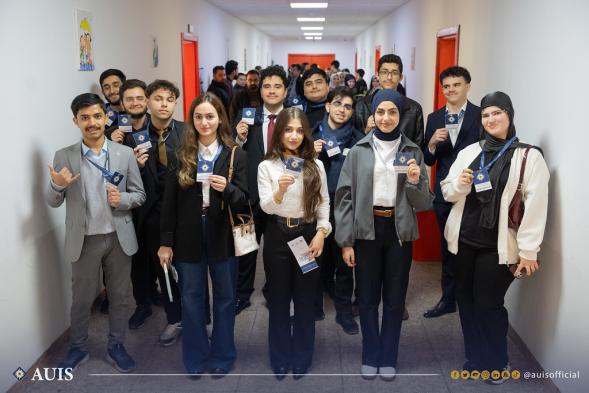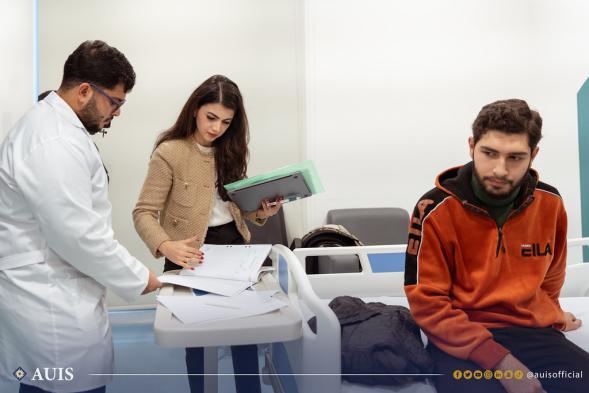AUIS Professor Dr. Lynn Rose Publishes Insightful Chapter on Disability and Family in Kurdistan-Iraq
Dr. Lynn Rose, Professor in the AUIS Social Sciences Department, is happy to announce the April 2024 publication of her chapter, “Coloniality, Disability, and the Family in Kurdistan-Iraq” in Intersectional Colonialities: Embodied Colonial Violence and Practices of Resistance at the Axis of Race, Indigeneity, Class, and Gender (Routledge). This chapter results from the work of 21 AUIS students who participated in a research methodology course in 2020.
People with disabilities are a substantial part of the Kurdistan-Iraq demographic. The World Health Organization estimated in 2021 that 15% of the world’s population is disabled, and that 80% of people with disabilities live in low- and middle-income countries. Because of constant warfare and poverty, Iraq has one of the highest percentages of people with disabilities in the world, yet there is very little scholarship that reflects this. In an effort to begin to bridge this gap, Dr. Lynn designed a class in which the students were trained in interview methodology, after which each student conducted a life-story interview with local people with disabilities. The 21 interviews were with people whose impairments were physical, cognitive, psychiatric, and sensory.
For both people with disabilities and nondisabled people in Kurdistan, the extended family network locks in a lifetime of security but can lock out substantial interaction beyond the family. One of the interviewees observed that “for most disabled people in our country, their place is the house! Only!” One of the reasons for this isolation is ableism, which is the belief that disabled people are worth less than nondisabled people. Ableism takes many forms, including architectural. Architectural ableism is expressed anywhere access is ignored, such as flights of stairs without the option of ramps. Ms. Sham, when asked what was accessible, responded: “Nothing. Nothing like that in Kurdistan.”
An impairment—any sort of impairment—is disabling, or not, according to the cultural context. In a supportive environment, people with impairments are not disabled by barriers. Mr. Rozh defines a supportive environment as “providing an environment that does not prevent me to do anything I want. For example, when I go to a governmental agency that serves everyone in the country, I don’t want to make anyone help me up the stairs; instead, I want a path that I can easily go through with my wheelchair.”
The outlook for the rights of people with disabilities in Kurdistan is challenging but not bleak. Several interviewees expressed their resistance to internalized stigma, pity, and paternalism. Ms. Tara says: “Life means my disability. It is beautiful, and it is my fate.” Disability advocacy organizations, founded and run by disabled people in Kurdistan, work to educate their communities. People with disabilities and their allies can effect change: we have seen this throughout the activism of the twentieth and twenty-first century. Mr. Rebaz says: “some people are sitting at home right now, and they can reprogram the whole system in this country.”
The AUIS academic community—professors and students working together—can also effect change. While in its earliest infancy, disability studies is making its way into some curricula. Education, in its broadest sense, is an important key to disability justice.






